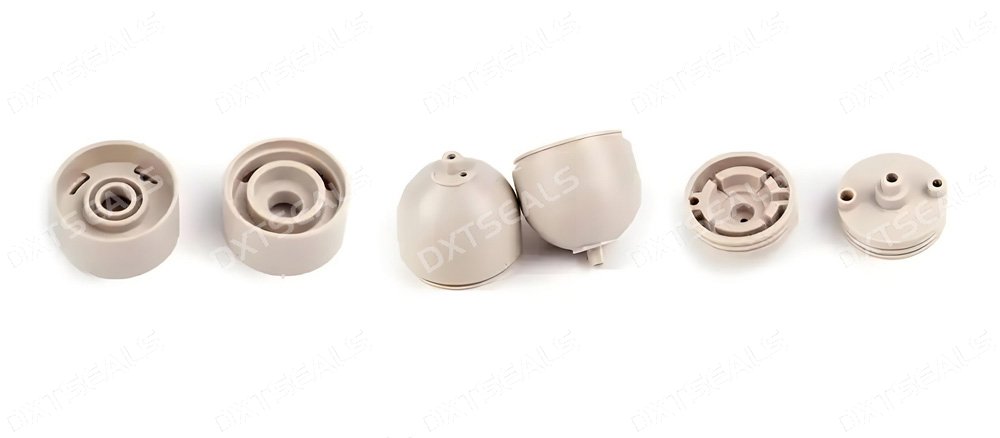
In industries where extreme chemical exposure is a daily challenge, material selection plays a crucial role in ensuring longevity, safety, and efficiency. Polyetheretherketone (PEEK) stands out as a high-performance thermoplastic known for its exceptional resistance to harsh chemicals, high temperatures, and mechanical stress.
This article explores why PEEK is the ideal choice for chemical processing, oil and gas, medical, and aerospace applications, where exposure to aggressive chemicals is common.
1. Exceptional Chemical Resistance of PEEK
PEEK’s molecular structure makes it highly resistant to a wide range of chemicals, including:
- Strong acids (e.g., sulfuric acid, nitric acid)
- Organic solvents (e.g., acetone, benzene)
- Bases and alkalis (e.g., sodium hydroxide)
- Hydrocarbons (e.g., gasoline, diesel, crude oil)
- Chlorinated solvents
- Steam and superheated water
Unlike metals, nylons, or other polymers, PEEK does not degrade, corrode, or weaken in aggressive chemical environments, making it ideal for long-term exposure.
2. Superior Thermal and Mechanical Stability
2.1 High-Temperature Resistance
PEEK can withstand continuous operating temperatures of up to 250°C (482°F), with short-term exposure exceeding 300°C (572°F). This makes it suitable for applications in extreme heat and chemical exposure simultaneously.
2.2 Mechanical Strength and Wear Resistance
Even under harsh chemical exposure, PEEK retains its high tensile strength (~90-100 MPa), impact resistance, and low wear rate, outperforming PTFE, PPS, and other polymers.
3. Key Applications of PEEK in Harsh Chemical Environments
3.1 Chemical Processing Equipment
- Seals, gaskets, and O-rings for chemical reactors
- Pump and valve components resistant to corrosive fluids
- Liners and tubing for handling aggressive chemicals
3.2 Oil and Gas Industry
- Downhole seals and bearings for high-pressure, high-temperature (HPHT) conditions
- Piping and fittings for drilling and refining applications
- Insulation for electrical components exposed to hydrocarbons
3.3 Medical and Pharmaceutical Applications
- Surgical instruments resistant to sterilization chemicals
- Implantable medical devices unaffected by bodily fluids
- Tubing and fluid handling systems in pharmaceutical production
3.4 Aerospace and Automotive Components
- Fuel system parts resistant to aviation fuels and hydraulic fluids
- Electrical connectors and insulators for chemically exposed environments
- Compressor valve components for high-temperature and corrosive airflows
4. PEEK vs. Other Chemical-Resistant Materials
| Property | PEEK | PTFE | PPS | Metals |
|---|---|---|---|---|
| Chemical Resistance | Excellent | Excellent | Moderate | Poor |
| Temperature Resistance | 250°C (482°F) | 260°C (500°F) | 200°C (392°F) | Varies |
| Mechanical Strength | High | Low | Moderate | Very High |
| Wear Resistance | Excellent | Low | Moderate | High |
| Corrosion Resistance | High | High | Moderate | Poor |
Why Choose PEEK?
- Stronger than PTFE while maintaining similar chemical resistance
- Higher temperature resistance than PPS
- Corrosion-proof compared to metals, reducing maintenance costs
5. Future of PEEK in Harsh Chemical Applications
With increasing demand for high-performance materials, PEEK continues to replace metals and lower-grade plastics in chemical, energy, medical, and industrial sectors. As industries seek longer-lasting, corrosion-resistant solutions, PEEK remains a top choice for the future.
Conclusion
PEEK’s exceptional chemical resistance, high temperature stability, and mechanical durability make it the ideal material for harsh chemical environments. Whether in chemical processing, oil & gas, or medical applications, PEEK ensures reliability, safety, and efficiency in the most demanding conditions.
For superior chemical resistance and long-term performance, PEEK remains unmatched in industrial applications.
